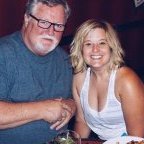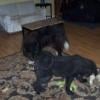I know when I was recently post-op I wanted to know what my life would be like after the dust settled, so to speak. When I had surgery I was 56 years old, at a weight of 234 lbs and a BMI of 35.6. I wore a size 22 dress and size 10 shoes (I'm 5'8). Dr. Alberto Aceves did my sleeve in Mexico (a 36 trochar) and repaired a large hiatal hernia. I was self-pay. After my surgery I lost my hunger and also developed some food aversions. I lost 102 lbs over about ten months. I followed the post-op instructions as well as I was able although some days I was not able to drink all my protein. When I graduated to solid foods I learned that regular bread seemed to ball up in my stomach and it felt awful. So did noodles. Chicken made me vomit. I ate lots of shrimp and steak. I ate no desserts other than baked custard that I usually ate for breakfast.
As my weight stabilized at 136, I had much more energy. I mostly walk and hike in summer, and swim indoors and ski in winter, but I am certainly not a fanatic. However, it is considerably easier to breathe and move almost 100 lbs. lighter than I was. Bad habits, though, can creep back. My hunger is still gone, but I have a tendency to eat when I am bored. It's easy for portion sizes to increase, so I consciously use my food scale and measuring cups. Also, my sweet tooth came back. I still can't eat cake (see bready things above) but let me tell you, chocolate candy and cookies go down just fine. But, I can easily lose five pounds in a few days when I am busy and out of the house and so I have managed to stay under 140 lbs (and size 6) since my surgery. (Oh, and I went down half a shoe size!)
To this day I cannot eat too fast or it comes right back up. I still get the slimies but rarely--usually when I am very hungry and eat too fast. I can't eat bread easily, although toast is fine. I cannot eat salmon, tuna, or other fish that dries out in the cooking process. I frequently use sauces to slide dry food down and I have learned to cook in ways that preserve the moisture in food. Eggs are iffy--sometimes I can eat them, other times not. Vegetables are fine if the pieces aren't too big. Crunchy things, like crackers, chips, and apples, are fine, although I avoid the chips except at parties. If I have them here I will eat them, but out of sight, out of mind. That is the difference between pre-surgery and post-surgery for me. Before surgery, I thought about food ALL THE TIME. I would be eating breakfast and thinking about what to eat for lunch and dinner. If I had to go out I had a "snack" in my purse. If I traveled, I carried food with me and bought food in airports and roadside quickie-marts besides. Now I don't think about food except when the clock tells me it's mealtime or if I get a little light-headed because I've forgotten to eat.
There have been some drawbacks to surgery. I can't give blood anymore because it takes too long to replenish my iron stores from food alone and iron supplements irritate my sleeve. I developed GERD about a year after surgery and have to take a PPI daily. I was diagnosed with osteoporosis this year--I had some risk factors unrelated to the sleeve, but a year of malabsorption/malnutrition probably didn't help, despite the liquid calcium citrate I took.
All in all, surgery was the right choice for me. It did not change my life, but it changed my relationship to food, and for that I am profoundly grateful. I have so much more time to devote to other interests instead of thinking about what I'm going to eat next. I wish you all the best and hope to read your success stories in a few years.










